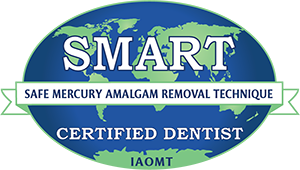When Do I Need to Get a New Toothbrush?
How long have you been using the same toothbrush? Everyday we throw away expired food from our fridges, replace supplements and vitamins, and ensure that we don't run out of beauty products. Our dental hygiene, however, does not get the same amount of attention as the rest of our daily routines. We often forget about this essential part of our body until it's too late. So when do you need to get a new toothbrush?
Many dentists and the American Dental Association (ADA) recommend changing your toothbrush every 3 months. With each use of your toothbrush, the bristles wear down and become less useful in removing germs and plaque from your gums and teeth. Studies have shown that it is around 3 months of use that renders a toothbrush ineffective.
Another thing to consider, that we probably don't want to, is that germs and bacteria can hide and live in the bristles of the brush. This is the reason why you should also replace your toothbrush immediately after being sick, otherwise you risk perpetuating the illness by possible reinfection.
In case you can't recall how long you have had your toothbrush, pay particular attention to the condition your toothbrush in in. Are the bristles worn out, fanned out, or frayed? These are signs that you need to replace it. Especially watch out for dark color changes, as this is a sign of mold or fungus forming.
Effects of Not Changing Your Toothbrush Often Enough
Knowing that germs and mold can accumulate on your toothbrush should be enough to convince most people that they need to throw out their old one, but these aren't the only issues involved with not replacing your toothbrush. When bristles wear down they become less effective in removing plaque buildup. This buildup can cause gingivitis which, left untreated, can cause some serious issues including infection and tooth loss.
If that isn't enough, you should also know that you can get sick from using old toothbrushes. Finally, and probably the most unappealing of everything already stated, if your toothbrush is stored near a toilet for prolonged periods of time you can end up ingesting undesirable particles. I'm going to go change out my toothbrush just thinking about it, and probably go schedule a cleaning appointment with my dentist.
What to Think About When Buying a New Toothbrush
During your next checkup, ask your dentist what kind of toothbrush is right for you based on your personal needs and state of your dental health.
If you want to go get one today (like I do after writing this), you should consider these common suggestions. Look for a toothbrush with soft bristles, because hard or stiff bristles can cause damage to your teeth and especially to your gums. Look for a toothbrush with a head that contacts only one or two teeth at a time. Always use toothpaste that contains fluoride and is ADA approved, think about getting mouthwash to further fight plaque buildup, and of course don't forget to floss!





